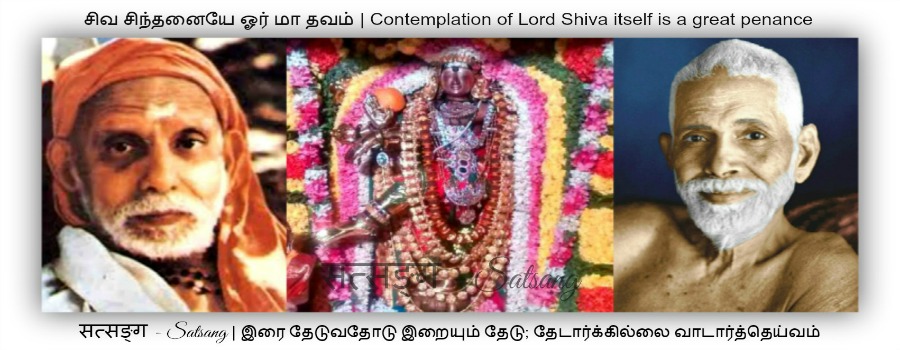One of Appayya Dikshitar's numerous works is Atmarpanastuti. It is a very moving work. The story is that once he wanted to test the intensity of his devotion. For that purpose he consumed a datura seed which produces intoxication and asked his disciples to write down all that he said during that state. This turned out to be the beautiful Atmarpanastuti in praise of Lord Shiva.
In this work he has praised Lord Shiva as the highest among the Trinity. This should not be understood to mean that he was a shaivite with a bias against vishnu. He was an advaitin and so made no distinction between shiva and vishnu. He says this clearly in the following sloka:
विष्णुर्वा शङ्करो वा श्रुतिशिखरगिरामस्तु तात्पर्यभूमिः
नास्माकं तत्र वादः प्रसरति किमपि स्पष्टमद्वैतभाजाम् |
किंत्वीशद्वेषगाढानलकलितह्रदाम् दुर्मतीनाम् दुरुक्तीर्भङ्क्तुं
यत्नो ममायं न हि भवतु ततो विष्णुविद्वेषशङ्का ||
vishnurva shankaro va shrutishikharagiramastu tatparya-bhumih
naasmakam tatra vadah prasarati kimapi spashtam-advaita-bhajam |
kintvishadveshagadhanalakalitahrridam durmatinam duruktirbhanktum
yatno mamaayam na hi bhavatu tato vishnuvidveshashanka ||
Translation: Let Vishnu or Shankara be the purport of the words of the upanishads. We advaitins have no dispute whatsoever on that point. My attempt is only to counter the biased statements of the evil-minded persons whose hearts are burning with the fire of hatred of Shiva. Let no one think that I am against vishnu.
Sri Appayya Dikshitar who demonstrated his complete mastery over descriptive verses in his Varadarajastava has in the Atmarpanastuti dealt with equal facility with mystic poetry and makes the inner self melt as it were by his exquisite poetry. In this work, we see the profound maturity of the true devotion to the Supreme Lord. The Atmarpana or surrender of oneself, is the very acme or end in the various stages of devotion to the Lord. There cannot be a greater stage in one’s evolution than this. This work seeks moksha or release as a final end. This reflects the inner mental state of a great devotee, in whom the ego has become fully extinct. The state of one who surrenders himself to the Lord is a stage of complete detachment. What he wants is eternal happiness. What he aims at is only release from the bondage of the never-ending cycle of births and deaths.
The disjointed prattle of Sri Appayya Dikshitar in a stage of intoxication became this stutikavya which is generally known as Unmatta Panchasati, because all the fifty verses in this work, were composed at a stage when Sri Appayya Dikshitar had no control over his mental faculties. From this work the fact that Sri Appayya Dikshitar had completely identified himself with the ninth stage of self-surrender or atma samarpana in bhakti yoga became very clear. In this work, Sri Appayya Dikshitar has totally surrendered himself to Lord Siva with a deep prayer that he should be given complete freedom from the cycle of births and deaths and be identified in the advaitic state of oneness with Lord Siva.
Sri Sivananda Yogi, a biographer of Sri Appayya Dikshitar has written a commentary on this work. The greatness of Appayya Dikshitar as an exponent of advaita vedanta has been brought out by the renowned scholar Bhattoji Dikshitar in the following sloka:
अप्पय्यदीक्षितेन्द्रानशेषविध्यागुरुन्नमस्यामः |
यत्कृतिभोधाबोधौ विद्वदविद्वद्विभाजनोपाधी ||
appayya dikshitendranaseshavidyagurunnamasyaamah |
yatkrutibhodhabhodhou vidvadavidvadvibhajanopaadhi ||
Translation: I prostrate before Appayya Dikshitendra, the Guru of all learning. The test whether a person is a vidvan or not is whether he has studied the works of Appayya Dikshitar or not. The beauty of this work lies in the sound of the words and the intensity of the devotion behind them more than on the meaning of the slokas.
Forthcoming posts on Atmarpanastuti (50 slokas) will be organized into one verse per post in Devanagiri with transliteration and meaning in Tamil and English.
Courtesy: http://www.shaivam.org, Sri S.N.Sastri


No comments:
Post a Comment